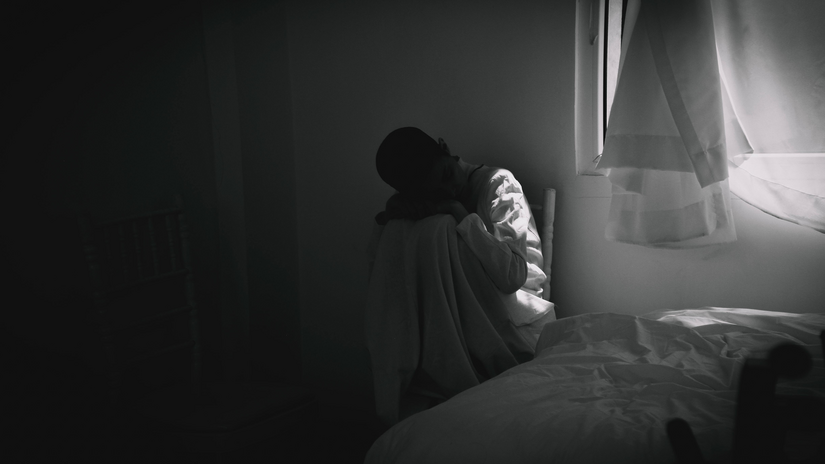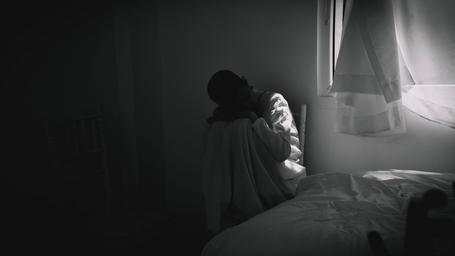I’m sure the triggering headlines on sexual assault cases of late have been occupying your social media feed way too frequently. Following the string of survivors who have boldly called out their perpetrators, the enraged online community has been a tremendous force of justice. While justice for survivors often centres on punishing the perpetrators, we tend to forget that these traumatic experiences live on. How can solidarity with sexual assault survivors better accommodate their healing process? I May Destroy You unpacks this very question.
“If you don’t show it, it can be erased” – Michaela Coel, writer & creator of I May Destroy You
Michaela Coel’s critically acclaimed series centres on Arabella (played by Coel herself), a struggling writer who loses consciousness during a night out and comes to a gradual terrifying realisation that she has been sexually assaulted. Being a survivor of sexual assault, Coel delivers an incredibly sensitive and nuanced portrayal of trauma. The series is a deliberation of what constitutes justice: should it take a more revenge-centred approach or a rehabilitative trauma-centred one? It is a timely and urgent navigation of what it means to live with sexual assault trauma, and we could learn a thing or two from it.
Here are some key takeaways:
(note: spoilers ahead)
- Sexual assault trauma is deeply disorienting
-
“I’m great, as long as I’m around people […] when I’m alone… it gets a bit much.” (Episode 4)
How does one fully comprehend that they’ve been sexually assaulted? Well, the truth is, you don’t – at least not immediately. Arabella is often ambushed by flashbacks of her assault. These flashes obstruct her ability to carry on “as per normal.” After the night of her assault, she completely disregards a gaping, bleeding wound on her forehead until her housemate offers to dress the wound for her. Bella’s denial that the assault had transpired results in an inability to focus, and frequent disengagements from her surroundings. It takes the concern of her friends and great sensitivity from the authorities for her to finally accept that she needs help.
- It is “profitable” to gaslight a survivor
-
“… because belittling your problems makes their lives a lot easier, doesn’t it?” (Episode 6)
The series delves into how institutions gaslight survivors in order to avoid more workload and wasting resources. In a powerful scene, the character Kwame (Bella’s friend) decides to report his perpetrator only to be greeted by a homophobic and uncompassionate police officer. The officer is visibly uncomfortable with Kwame’s detailing of an incident of non-consensual humping by a man he met on Grindr. He goes on to chide Kwame for not “making it easier [for him]” and reporting the case through a machine instead. This is an instance of the institutional discrimination many survivors face in reporting their cases due to an absence of resources dedicated to educating officers; and creating a culture of sensitivity towards all survivors regardless of race, gender, sexuality and more. The inability to invest in understanding sexual assault across a spectrum (or rather the refusal to comprehend it) silences survivors.
- There is no “bigger picture”, you are the picture
-
Bella: “Yeah [when it gets a bit much] I say, ‘there are hungry children, there’s a war in Syria, not everybody has a smartphone…’ So I remind myself of the bigger picture.”
Therapist: “Sometimes when we try to see the bigger picture, we lose sight of the little one altogether… the little detail here is you.” (Episode 4)
Trauma incites A LOT of self-doubt. The characters in I May Destroy You tend to leave their sexual assault experiences unaddressed as a result of this. We catch glimpses of how these traumatic episodes begin to eat at its characters’ self-worth in various scenes. In the case of Kwame, the assault on his body causes him to fear any form of intimacy or prospect of being loved. It is only when his friends finally listen and reaffirm the validity of his trauma that he finds the space to heal. The series reminds us that big or small, it is important to actively attend and create safe spaces to accommodate the traumatic experiences of those around us.
- Trauma is that ghost under your bed
-
“I’m not afraid of you. Because you’re not under my bed. You’re here with me so you don’t scare me. And I’ve gone underneath into the darkness and that darkness is now in me looking at you. So I might seem a bit more frightening than the last time you saw me.” (Episode 10)
This series is about reclaiming power. Right at the beginning, the little details like the constantly falling poster on Bella’s wall and her repeated reframing of it gives us a sense of this need to regain control. She quite literally keeps the reminders of her assault in trash bags under her bed, afraid to confront this disempowering incident. By surrounding herself with trustworthy and supportive circles, Bella finds the space to process an entire rollercoaster of denial, pain, shame, and more to arrive at the realisation that avoiding her trauma gives it power. It is when she confronts the contents in the trash bags under her bed that the traumatic flashbacks lose their grip on her.
- Above all else, empathy
-
It is certainly not a coincidence that I May Destroy You begins and ends with the bar named, “Ego Death.” The series is driven by characters who are obsessed with invading each other’s spaces and bodies. Arabella is seen waltzing in and out of rooms and houses without permission, Kwame is invaded by men who want to own him, and Bella’s fling removes a condom secretly while having sex with her.
These scenes recognise intrusions as a subset of a patriarchal system that normalises the obsession with crossing boundaries. The notion of feeding one’s ego or having an inflated ego runs deep in said instances. “Ego death” seems to signify the death of the power dynamics “ego” thrives on. Through this motif, Coel hints at how trauma is better facilitated by the ability to think about the other — empathy.
I May Destroy You is all this and so much more. It is one of those narratives that genuinely seeks to disrupt binary ideas of justice. The series situates trauma as a rehabilitative rather than vengeful process that necessitates making space for survivors on all fronts – the individual, community and institutional. In order to realise this, empathy is the greatest driving force. To quote Coel, “… our lives and our worlds are so rich, so connected and brotherly, it feels great to feel such unity, it feels whole.”



